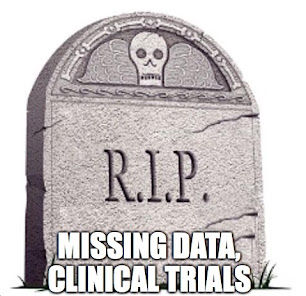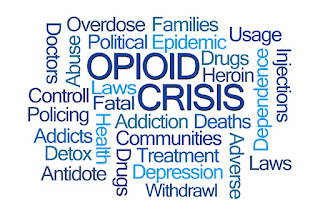RIP, Missing Data
Imagine you are suffering from depression. Your psychiatrist puts you on a well-known anti-depressant of which millions of doses are prescribed every year, around the world. But you feel worse than ever before. You even receive a professional setback owing to the drug’s side effects. The psychiatrist is perplexed because she had chosen a drug based on well-designed, fair trials, with overwhelmingly positive results. What could be wrong?
Interestingly, sometime later, your doctor comes across an uncustomary study conducted by a group of researchers. They have discovered that for all the antidepressants that came to the market in the last fifteen years, only half the clinical trials were published in full – the ones with positive results for the drugs. The ones with negative results were simply lost to history, never appearing anywhere other than in the dusty, disorganized, files of the FDA. A few of the negative trials did appear in academic literature, but were written about as if the drugs-in-question were a success.
If you think this sounds like a work of fiction, it is. Only the problem of the missing data presented in ‘The Aquila Trials’ is grounded in reality. Take the study of all the antidepressants that came to the market between 1987 and 2004. Exclusively the trials with positive results (about half) were published. Researchers also found that an astounding 74% of patient data had previously been unpublished for a particularly popular antidepressant reboxetine. When they synthesized all the evidence on this drug, their conclusion was damning: reboxetine was “overall an ineffective and potentially harmful antidepressant.” This conclusion starkly contradicted the findings of other systematic reviews and meta-analyses published by reputable journals, since the journals had based their findings on publicly published evidence! This is not a lone account of a singular drug or class of drugs, but a practice prevalent across the industry.
“Companies are perfectly entitled to conduct seven studies, but only publish the two positive ones, and this behaviour is commonplace,”says Ben Goldacre, author of ‘Bad Pharma.’ This means that drug companies routinely keep unfavourable results from the public, which could offer vital information for patients and doctors.
While publishing in journals may be somewhat optional, research institutions, almost worldwide, are required to report the results of human studies of new treatments to their respective federal government’s online databases. Yet, drug companies (and medical schools, teaching hospitals, nonprofit groups, etc.) routinely skirt disclosure laws. A STAT investigation found that several prestigious medical research institutions such as Stanford University, Memorial Sloan Kettering Cancer Center, and others have flagrantly violated a federal law requiring public reporting of clinical study results. What’s more, the US federal government, which has the power to impose fines or suspend the research funding of institutions that fail to disclose trial results, has not levied a single fine in all these years.
Cherry picking is one of the biggest banes of evidence-based science. Of course, we expect this to a certain extent, but we do not expect the scale at which this occurs. The truth is that almost all the negative data on drugs has disappeared. In the real world of medicine, practitioners use trial data to compare the effectiveness and side effects of drugs, but when they are routinely deprived of half the data, they have no idea about the true effects of the treatments they prescribe. This is a bizarre situation for a discipline where everything is supposed to be based on evidence.
The vast majority of drugs currently in use came to the market over the past ten, twenty, or thirty years during the golden era of pharmaceutical research. These are the drugs that we are prescribing completely blind, misled by a biased sample of trials, selectively published, with the unflattering data buried in secure underground archives.
Recently, several drugs are being repurposed for the treatment of COVID-19 based on in-vitro or early clinical findings. It is important to have safety data on these drugs from previous clinical trials. But a lack of timely reporting of trial results on public registries or in academic publications is widening the evidence gap regarding the safety of drugs. For instance, 37% of trial results on hydroxychloroquine, 78% on favipiravir, and 41% on lopinavir – key drugs considered for the pandemic – are missing.
In a recent ruling, a federal judge from the Southern District of New York has mandated that “drug companies, device manufacturers, and universities must turn over missing data from hundreds of clinical trials conducted in the United States from 2007–17.” This data must be collected and posted to www.
#ClinicalTrials #ScientificResearch #COVID-19 #AquilaTrials #Reboxetine #BenGoldacre #BadPharma #STATinvestigation #negativetrials #hydroxychloroquine




Comments
Post a Comment